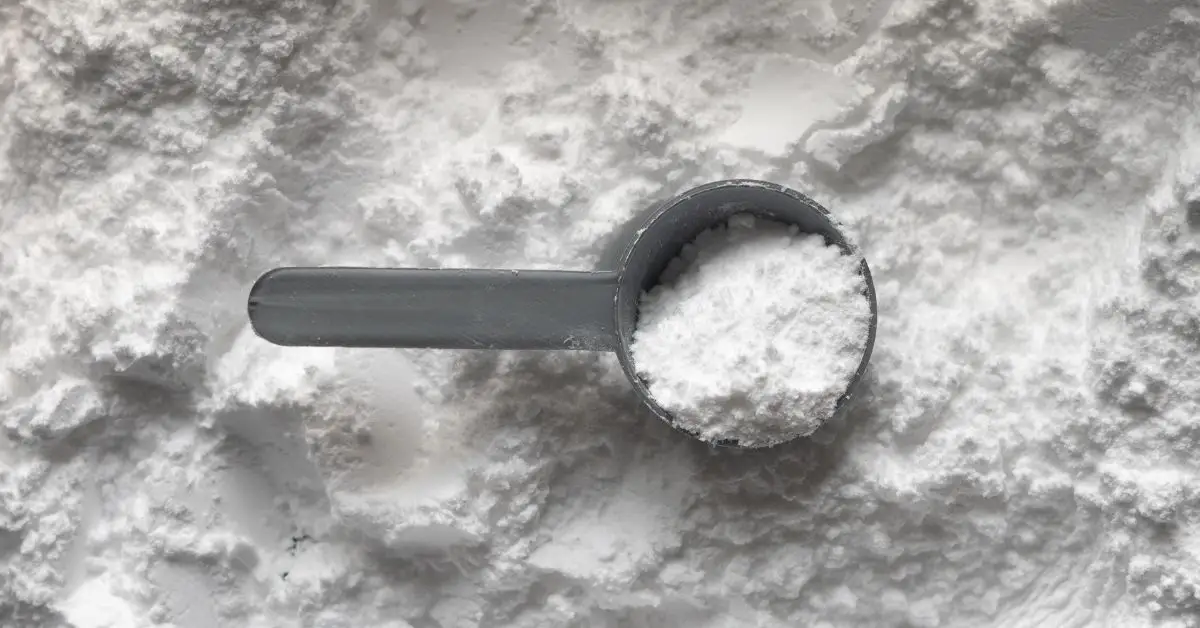Introduction
With increasing muscle size, creatine can also cause unwelcome weight gain, which some people mistake as fat. Before taking creatine supplements, Knowing the type of weight gain, you may test and what you can do to reverse unwelcome weight is essential. Moreover, taking creatine supplements during cutting doesn’t harm your weight loss goals. It might offer benefits beyond just muscle protection. Creatine supplementation enhances exercise performance, but most studies show it does not affect testosterone levels. If you are concerned about your testosterone, get enough sleep, exercise, calories, vitamin D, magnesium, and zinc.
1. How Creatine Works in the Body
Creatine is an amino acid in our body’s muscles and brain. Our body reserve creatine as phosphocreatine, primarily in our muscles, where it is used for energy. Moreover, Most people get creatine through seafood & red meat. However, The body’s liver, pancreas & kidneys can also make about one gram of creatine daily. Furthermore, people take creatine orally to improve athletic performance and increase muscle mass. Creatine creates “quick burst” energy and increased strength, which improves performance but has little effect on aerobic endurance. Most people who use creatine supplements are male athletes primarily involved in power sports, such as football, wrestling, hockey and bodybuilding.

2. The Role of Water Weight in Creatine Supplementation
Water heaviness is a type of weight gain that may occur with creatine. Creatine may cause rapid water weight because the supplement draws water into our muscle cells, Also known as fluid retention. Moreover, our muscles will hold onto this water, resulting in bloating, puffiness, or bulking around our arms, legs, or stomach. The gains in body mass observed are likely due to water retention during supplementation. Creatine is an osmotically active substance. Thus, any increase in the body’s Creatine content should result in increased water retention and consequent gains in body mass.
3. Muscle Mass vs Body Fat: Understanding the Difference
Muscle density vs Fat: Does muscle weigh more than fat? A kg of muscle weighs the same as a kg of fat, but the fat will have a greater volume. The muscle fibres will have a greater density. So, a kg of muscle will take up less space and look smaller than a kg of fat. Furthermore, Muscle mass may contribute to our entire everyday calorie burn. Some Studies show that each pound of muscle burns up to seven additional calories daily.
In contrast, fat only burns about two calories per pound. However, the main difference between fat & muscle is that muscle is denser than fat. In other words, one pound of fat tissue has more volume than one pound of muscle tissue.
Fat and muscle are two types of tissues in the body. They are essential in the metabolism and maintenance of a healthy body. Furthermore, fat tissue utilizes less amount of calories, while muscle tissue utilizes a higher amount of calories.

4. The Impact of Creatine on Athletic Performance
Taking creatine in foods or supplements can increase muscle creatine stores. Creatine supplementation demonstrates increases in performance and strength in short-duration, maximal-intensity exercises, as measured by 1-repetition maximum, muscular power, number of repetitions, muscular endurance, speed, and total force. Research has also shown that creatine loading may increase an athlete’s ability to perform activities that require short bursts of power with proper training.
Creatine creates “quick burst” energy and increased strength, which improves performance but has little effect on aerobic endurance. Most people who use creatine supplements are male athletes primarily involved in power sports, such as football, wrestling, hockey and bodybuilding.
5. Potential Side Effects of Creatine Supplementation
While taking creatine might not help all athletes, evidence suggests it generally won’t hurt if taken as directed. Although an older case study indicated that creatine might worsen kidney dysfunction in people with kidney disorders, creatine doesn’t appear to affect kidney function in healthy people. While taking creatine might not help all athletes, evidence suggests it generally won’t hurt if taken as directed. Although an older case study indicated that creatine might worsen kidney dysfunction in people with kidney disorders, creatine doesn’t appear to affect kidney function in healthy people.

6. Factors That Influence Weight Gain with Creatine
Studies show that you may gain weight quickly when taking creatine, mainly when using a filling phase. Furthermore, If you’re in the mid of a fat loss phase & begin adding creatine, you can be caught protected by the sudden weight get that might result. However, the positive news is that creatine doesn’t lead to fat acquisition. Any rapid weight acquisition you test from creatine is more or less guaranteed to be water weight gain. Moreover, when you increase your body’s creatine levels, the creatine can pull in extra water. Storing more water inside cells could favour your aspect by making you look more muscular or at least “bigger.” However, Conversely, extracellular water (outside your cells) could lead to minor “bloating” effects that visually resemble fat gain. For reasons we’ve already covered, creatine is one of the best muscle-building supplements ever.
7. Different Forms of Creatine and Their Effects on Body Weight
Mainly there are six types of creatine. Creatine monohydrate is the commonly used form. Much research indicates that it’s safe & practical, and new supplement forms should be compared to it. Creatine ethyl ester may have different absorption and uptake rates than other forms. However, it does not appear as effective as the monohydrate form and is not recommended for use. At the same time, the hydrochloride HCl form’s high water solubility is promising. And it needs to be studied more before it can be recommended over other forms. Some supplement manufacturers have attempted to improve creatine stability in the stomach by adding an alkaline powder, developing in a buffered form.
Creatine magnesium chelate is a supplement that’s “chelated” with magnesium. However, This simply means that magnesium is attached to the creatine molecule. Moreover, While most creatine supplements come in powdered form, some ready-to-drink versions have already dissolved the supplement in water.
8. Combining Creatine with Other Supplements for Optimal Results
The combination of creatine & beta-alanine may be the best-kept secret in bodybuilding. This heap yields muscle gains and improves strength & endurance. Moreover, The effectiveness of creatine supplementation is well known. Creatine increases lean muscle mass, boosts power, and provides more energy during intense workouts. Combine the effectiveness of creatine with the fact that it has no side effects, and you have a recipe for a best-selling supplement.

9. How to Monitor Your Body Composition When Taking Creatine
Twenty grams per day is typical. Many athletes use a loading dose of 20 grams daily for up to 1 month. While that may be effective, it may not be a necessary amount to see creatine muscle benefits. Furthermore, the recommendation is 5 gramsTrusted Source (approximately 0.3 grams/kg body weight) four times daily for 5–7 days.3–10 grams may help with maintenance. Once creatine stores are fully saturated, 3–5 grams per day can help with care, but some studiesTrusted Source suggests that more prominent athletes may need to consume as much as 5–10 grams per day to keep creatine stores constant. Taking creatine supplements during cutting doesn’t harm your weight loss goals. It might offer benefitsTrusted Source beyond just muscle protection.
10. Who Should and Shouldn’t Take Creatine for Weight Gain
Consuming creatine supplements may stop the body from making its natural stores, although researchers don’t know the long-term effects. However, People with kidney, high blood pressure, or liver disease should not take creatine. The Food & Drug Administration recommends talking to your doctor before taking creatine.
Conclusion
Creatine is one of the many popular nutritional supplements on the market, thanks to its benefits for athletic performance, muscle mass, endurance, and strength. With so many people using creatine to achieve their fitness goals and improve their body composition, it’s understandable that some have concerns about potential side effects like weight gain.




